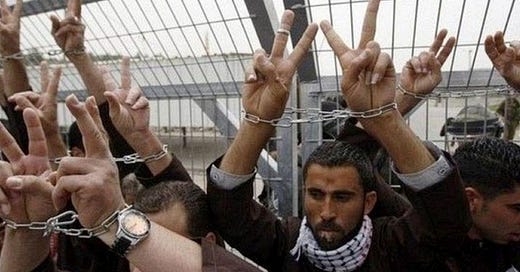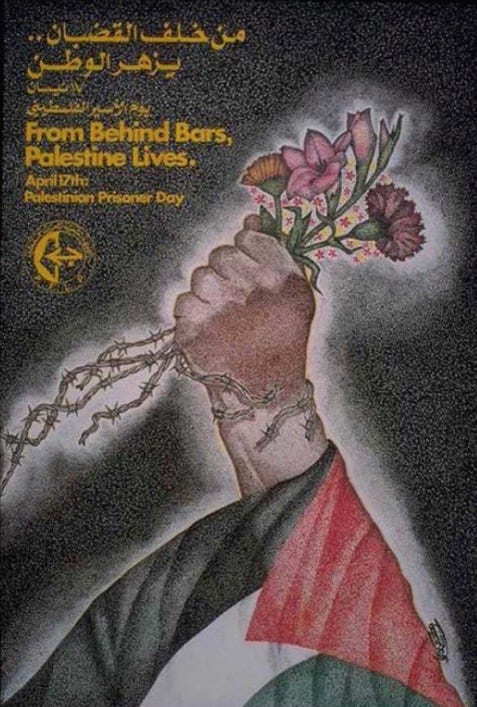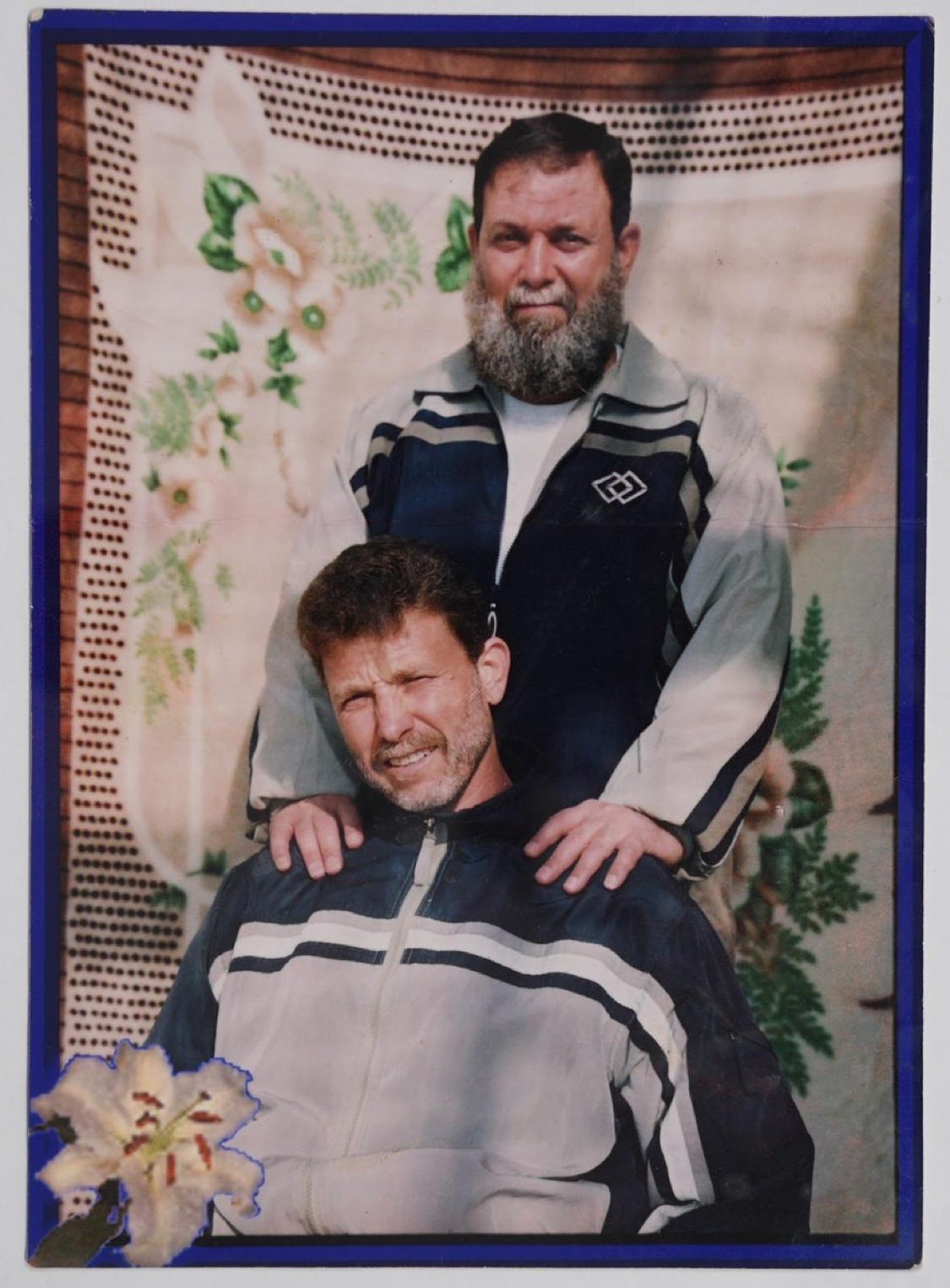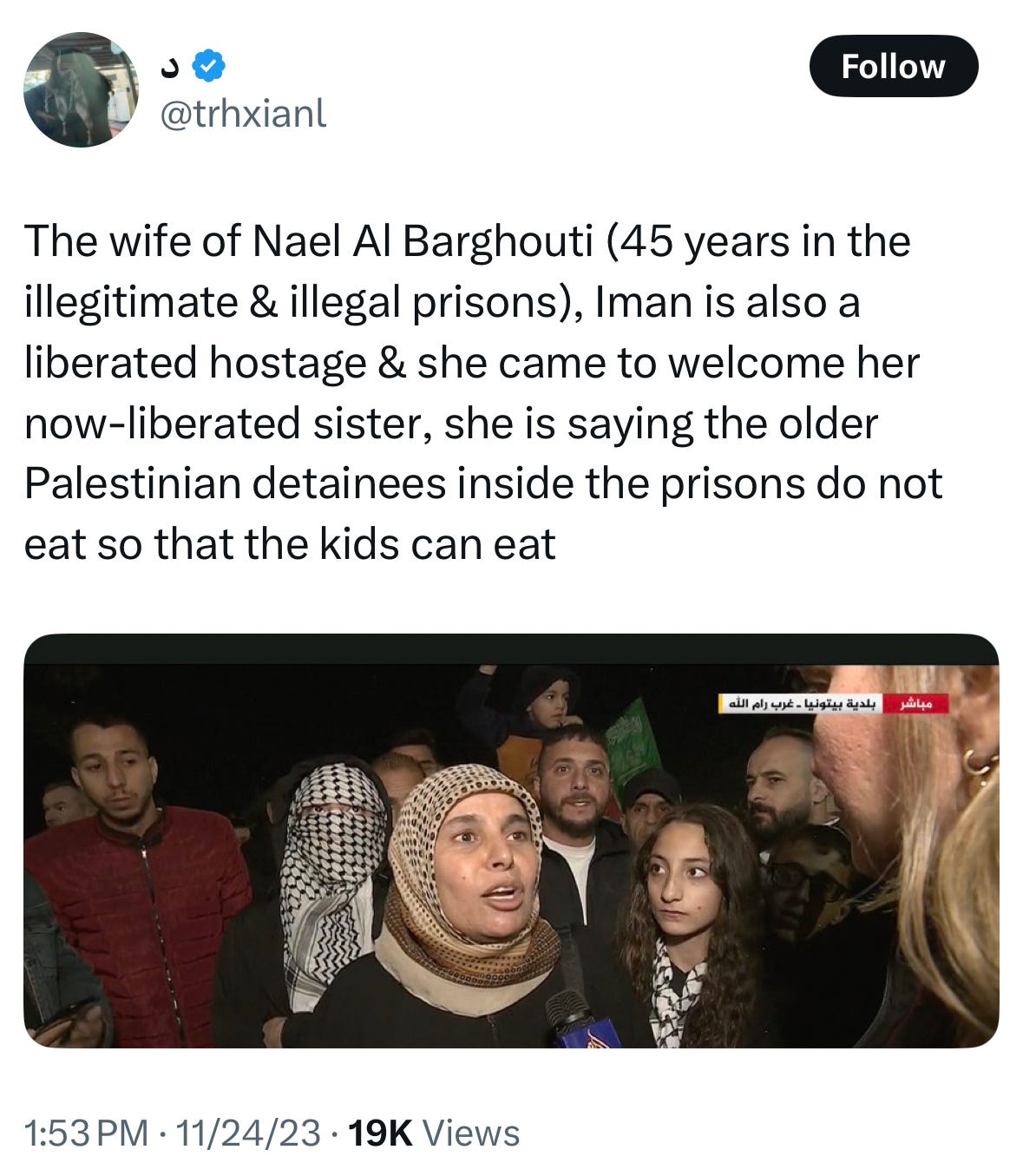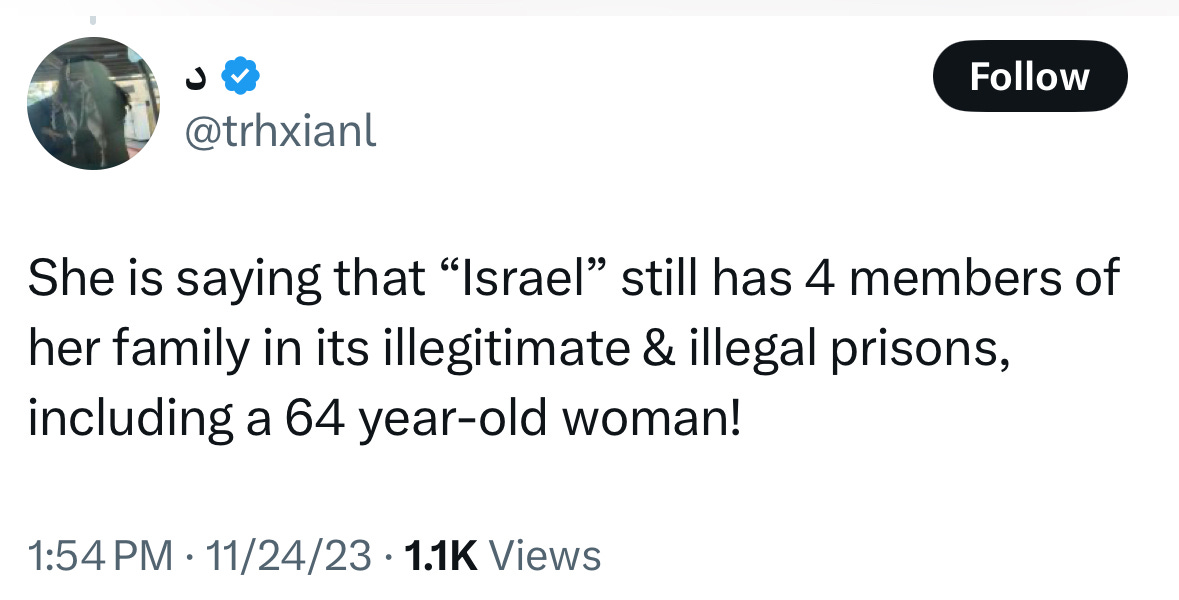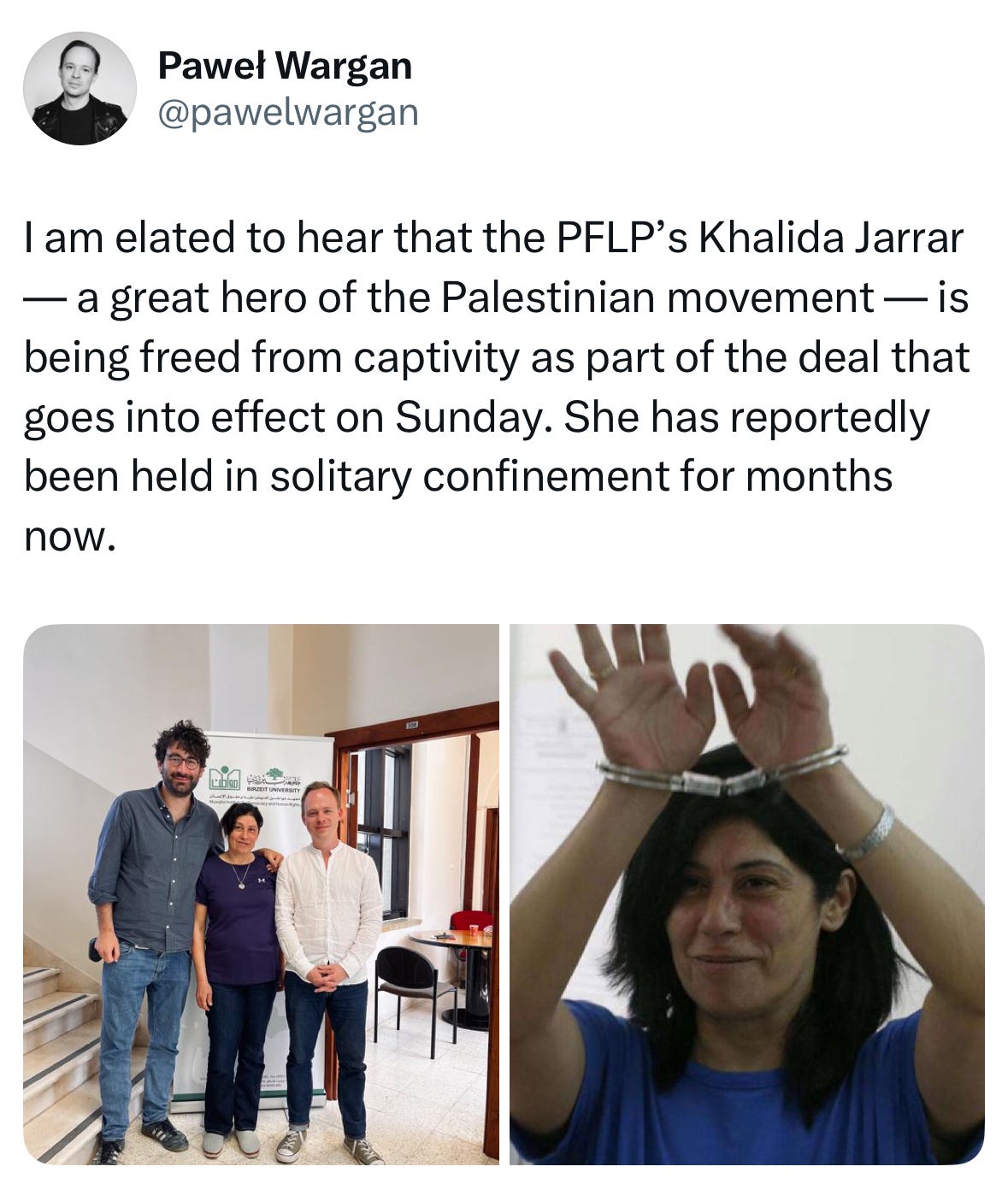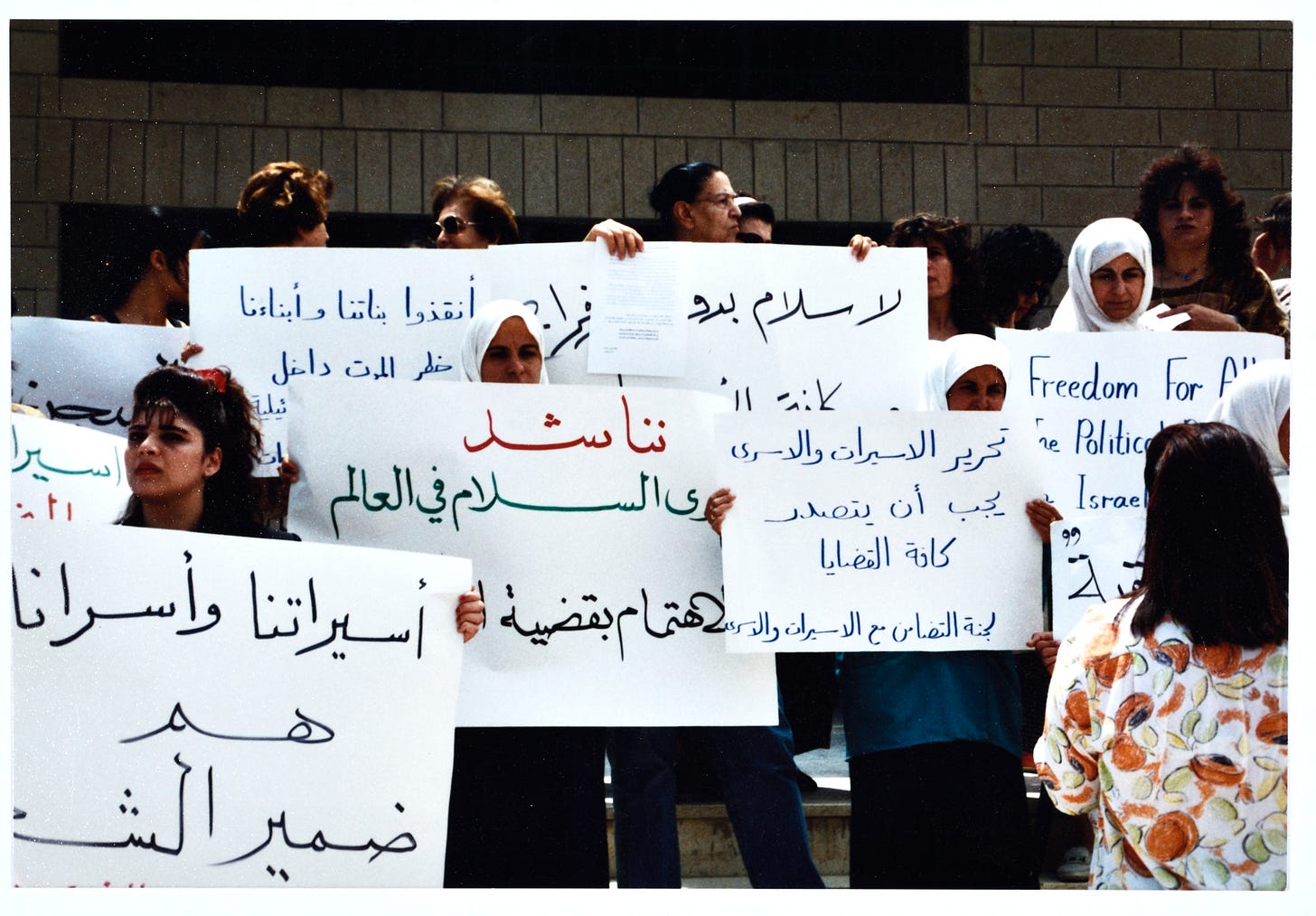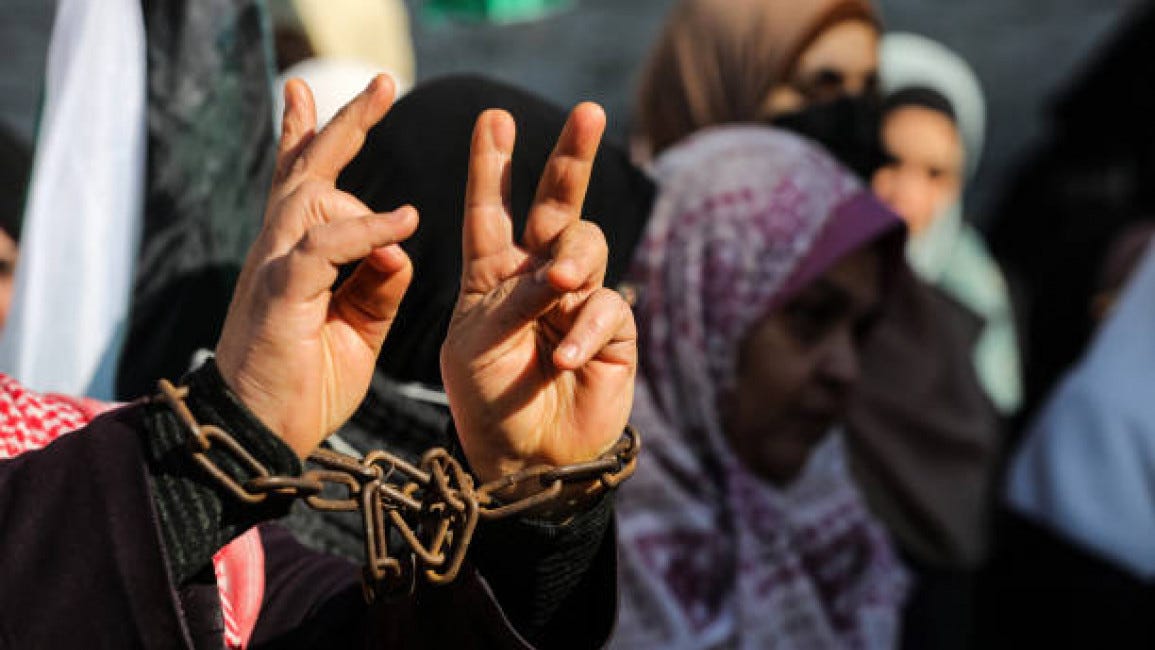From Writers Against the War on Gaza:
Today, on Palestinian Prisoner’s Day, we affirm that the movement to a free Palestine is at its core a prisoner’s liberation movement.
In January, the resistance achieved one of its most significant victories: securing the release of hundreds of Palestinian prisoners from Zionist detention, part of a hard-won ceasefire and exchange agreement.
Among them was Nael Barghouti, the longest serving Palestinian political prisoner imprisoned by the occupying forces for 45 years.
Nael al-Barghouti was born in 1957 in Kobar, a village near Ramallah, to a family of freedom fighters. When the occupation army invaded his village during the 1967 naksa, the family threw stones at the soldiers from the roof of their home.
Barghouti was arrested at 20 years old, with his brother Omar and cousin Fakhri, after being accused of killing an occupation soldier. They were sentenced to a lifetime imprisonment.
Barghouti’s mother, Farha–”joy” in Arabic–would be mocked when visiting her sons in prison, guards calling her “Farkha” (chicken) to taunt her. “Thank God I gave birth to roosters who will pick your eyes,” she told the guards.
Lovingly called “Abu Al-Noor,” Barghouti is admired by fellow prisoners for his vast knowledge, love of reading, and passion for Palestine’s history of resistance.
Eman Nafe, Barghouti’s wife, is a former political prisoner as well. “For us, it’s joy when we see them freed, but it’s incomplete due to what’s happening in Gaza—the destruction and massacres.”
“Prisoners are the north star of our movement. Their strength is our strength.” In honor of Palestinian Prisoners’ Day, our latest Bulletin analyzes the Palestinian liberation movement as an abolitionist struggle.
Palestinian prisoners have produced some of the most vital works of the liberation struggle, written by heroes like Walid Daqqa and Khalida Jarrar. “Every library in Palestine,” writes Birzeit University scholar Basil Farraj, “has a prison literature section.”
Nael al-Barghouti, the longest-serving Palestinian political prisoner––known to his fellow prisoners as “Abu Al-Noor,” or “Father of Light”––was released from Zionist captivity on January 27 as part of the “Flood of the Free” exchange deal won by the resistance.
Revolt is in al–Barghouti’s blood: When the occupation army invaded Kobar during the 1967 Naksa, his family threw stones at the soldiers from the roof of their home. A decade later, he was arrested and sentenced to 112 years—and now he is out.
Administrative detention is the Israeli practice of holding Palestinian detainees without charge or trial in what often functions as indefinite imprisonment. Zionist forces inherited this method from their British patrons, who used it against Palestinians long before the Nakba.
Immigration and Naturalization Service, working with the FBI, stormed into the homes of seven Palestinian activists and one Kenyan activist on January 26, 1987. Six were legally in the United States on student visas; two were longtime lawful permanent residents.
The state justified their arrest of the LA 8 using the McCarran-Walter Act, originally written to deter Eastern European Jewish Holocaust survivors. The same law has now been used to justify the abduction of Mahmoud Khalil.
We leave you with the words of the freed prisoner and former PFLP leader Khalida Jarrar: “We defeated any lingering sense of inferiority and turned the walls of prison into an opportunity. Hope in prison is like a flower that grows out of a stone.”
“EMPTY THE ZIONIST DUNGEONS: Abolish these sites of torture and death! Free the prisoners! Free them all!”
From Al Jazeera: A Nation Behind Bars: Why Has Israel Imprisoned 10,000 Palestinians?
On April 17 each year, Palestinian Prisoners’ Day is commemorated to highlight the plight of those held in Israeli jails and their struggle for freedom under occupation.
Here’s why so many have ended up behind bars.
There are currently nearly 10,000 Palestinians held in Israeli jails.
Of those in detention:
3,498 are held without charge or trial
400 are children
27 are women
299 are serving life sentences.
Israel is the only state in the world that tries children in military courts. One of the most harrowing child prisoner cases is that of Ahmad Manasra, who was arrested at the age of 13 and released in 2025 after serving almost nine years.
Since October 2023, the number of Palestinian political prisoners has doubled, rising from 5,250 to nearly 10,000.
Since Oct 7, 2023, Israel has detained about 30,000 Palestinians. During the prisoner-captive exchanges with Hamas, Israel has released just more than 2,000 Palestinian prisoners.
That means, for every person released, 15 others were apprehended.
During the nearly two-month ceasefire earlier this year, Israel released 1,793 Palestinian political prisoners, while Hamas freed 38 Israeli captives, including eight bodies.
For many Palestinian families, arrest has become an inevitability. Many fear that mass imprisonment is not just a byproduct of occupation but a deliberate tool of control.
From Vox Ummah: Palestinian Prisoners’ Day 2025: The Resistance And The Road To Freedom
Each year, the Palestinian liberation movement commemorates Palestinian Prisoners’ Day on 17 April; this date has been marked since 1974, although the inscription of the prisoners’ movement on the Palestinian cause dates back decades before, to the era of the British colonial mandate over Palestine.
Just as Theodor Herzl sought a partnership with Cecil Rhodes over “something colonial” in Palestine, and as Baron Rothschild obtained the Balfour Declaration from the notorious racist Lord Balfour, the Zionist regime, upon its replacement of the British mandate, immediately adopted its policies toward Palestinian prisoners. These include “administrative detention,” imprisonment without charge or trial, under a “secret file,” indefinitely renewable, often for years at a time, and the demolition of family homes after the assassination or imprisonment of a resistance fighter or a political prisoner.
From the prison labor camps of the Nakba, in which thousands of Palestinians were forced to toil for the Zionist project atop their stolen land – and then, in many cases, expelled with their families from their homes and lands – to the notorious interrogation cells and prison camps of the post-1967 era, to today’s ultra-surveilled prisons and torture camps, imprisonment has always been used as a colonial weapon in Palestine. It is used in an attempt to suppress the Palestinian resistance, to shatter its popular cradle, and to isolate its leadership from their people, their loved ones, and their broader movement. While these attempts have always failed, as have all of the attempts to break the resistance in Palestine and throughout the region, the Zionist regime continually pursues intensified forms of repression.
This year, Palestinian Prisoners’ Day comes amid the ongoing genocide in Gaza, which has already claimed the lives of over 52,000 martyrs, with over 10,000 more missing under the rubble and new orders of US-made missiles and bombs dropped by the Zionist occupation forces on the Palestinian people on a daily basis. It also comes amid the continuing upsurge of the Palestinian resistance, which earlier this year freed 1,777 Palestinian political prisoners from the occupation’s dungeons in the Toufan al-Ahrar (Flood of the Free) prisoner exchange, taking its name from Toufan al-Aqsa, the Al-Aqsa Flood, the name given by the Izz el-Din al-Qassam Brigades to its heroic and masterful military operation on October 7, 2023. The Al-Aqsa Flood had, as one of its aims from its inception, the liberation of Palestinian prisoners, alongside acting in advance to confront a planned Zionist assault on Gaza, to break the siege, and to re-center the Palestinian cause in the Arab and Islamic nations.
The liberation of Palestinian prisoners has often been central to many of the key operations of the Palestinian resistance…
From the Institute for Middle East Understanding (IMEU): Israel Must Be Stopped. Palestinians Must Be Free.
Today is Palestinian Prisoners’ Day, and Israel is holding more Palestinians captive in its abusive prisons than ever before.
Here’s what you need to know.
Since its founding, Israel has unjustly held tens of thousands of Palestinians captive in inhumane prisons to maintain its oppressive control over their lives and land.
Now, it’s imprisoning and torturing more Palestinians than ever before.
Since beginning its genocide in Gaza, Israel has arrested over 16,500 Palestinians.
Israel is now holding at least 9,900 Palestinians captive, including 400 children. That’s well over twice the number of Palestinians that Israel was holding captive in 2022.
Around one-third of Palestinians currently in Israel’s prisons are being held without charge or trial.
Using a racist apartheid law, Israel abducts Palestinians from their neighborhoods & homes in the middle of the night often imprisoning them with no explanation – indefinitely.
According to B’Tselem, Israel has turned its already-brutal prison system into a “network of torture camps.”
Released Palestinians testify that Israel is subjecting them to starvation and rotting food, physical and sexual abuse, beatings, dog attacks, and other acts of torture.
In March, Israel starved an imprisoned child, Walid Ahmad, to death.
Since the start of its genocide, Israel has killed at least 60 Palestinians in its prisons. If Israel’s oppression of Palestinians is not stopped, it will torture and kill scores more.
Israel’s torture and abuse of Palestinians in its prisons are among the gravest – and most blatant – human rights abuses of our time.
Israel must be stopped. Palestinians must be free.
From the Interactive Encyclopedia of the Palestine Question: Palestinian Political Prisoners in Israeli Jails
The detention of Palestinians in the context of actual or alleged ideologically motivated acts has been a central feature of the Palestinian struggle since the British Mandate extended its grip on Palestine. In turn, the arrest and incarceration of Palestinians, children and adults, young and old, have had a significant impact on Palestinian society and on the confrontation between the Palestinians and their adversaries. This is so because of their personal involvement in the struggle, the harshness of their experience, their militancy inside the jail itself, and the identification of their families with their fate, especially since most families have or have had a member or close relative who has been incarcerated. Since 1967, most of the detainees have been Palestinian residents of the West Bank (including Jerusalem ) and the Gaza Strip and those within Israel's 1948 borders; a smaller number are Syrians from the Golan Heights and Lebanese, Jordanian, and Egyptian nationals…
17-Year-Old Palestinian Child Prisoner Starved to Death by Israeli Prison Guards
From Defense for Children International - Palestine:
Israeli Forces Detaining 14-Year-Old Palestinian Boy for 4 Months
From Defense for Children International - Palestine:
Palestine will be free
The Oxford Union recently voted by an overwhelming majority of 278 to 59 that "Israel is an apartheid state responsible for genocide" in Palestine.

